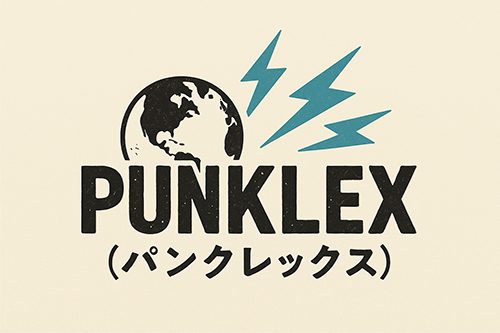Formation & Members
System of a Down, often abbreviated as SOAD, is a band that defies easy categorization. Formed in Glendale, California in 1994, the band was originally composed of four Armenian-American members: Serj Tankian (vocals, keyboards), Daron Malakian (guitar, vocals), Shavo Odadjian (bass, backing vocals), and John Dolmayan (drums). The formation of the band was rooted in the members’ shared cultural heritage and their desire to create music that was both innovative and socially conscious.
Before forming System of a Down, Tankian and Malakian were part of a band called Soil. After recruiting Odadjian and Dolmayan, they changed their name to System of a Down, a moniker inspired by a poem penned by Malakian titled “Victims of a Down.” The change to “System” was suggested by Odadjian, reflecting a broader, more inclusive appeal. From its inception, the band was known for its dynamic live performances and its ability to blend diverse musical influences into a cohesive and powerful sound.
Musical Style & Characteristics
System of a Down is renowned for its eclectic and distinctive sound, which combines elements of heavy metal, punk rock, Armenian folk music, and avant-garde experimentation. Their music is characterized by abrupt tempo changes, unconventional song structures, and a fusion of aggressive riffs with melodic passages. Serj Tankian’s vocal style is particularly notable for its versatility, seamlessly transitioning from operatic singing to guttural screams.
The band’s lyrics often address political and social issues, including war, genocide, environmental concerns, and human rights. Their ability to tackle such heavy topics with both seriousness and satirical humor has set them apart in the punk and hardcore scenes. Moreover, System of a Down’s music frequently features rhythmic patterns and motifs inspired by Armenian music, adding a unique cultural layer to their sound.
Key Works & Discography
System of a Down’s discography is a testament to their creative evolution and widespread influence. Their self-titled debut album, released in 1998, introduced audiences to their distinctive sound with tracks like “Sugar” and “Spiders.” However, it was their sophomore effort, “Toxicity” (2001), that catapulted them to international fame. Featuring hits like “Chop Suey!,” “Aerials,” and the title track “Toxicity,” the album was both a critical and commercial success.
In 2002, the band released “Steal This Album!,” a collection of previously unreleased tracks that reinforced their reputation for eclectic and thought-provoking music. Their next major project was the ambitious two-part release of “Mezmerize” and “Hypnotize” in 2005, which continued to push musical boundaries and featured standout tracks such as “B.Y.O.B.” and “Lonely Day.”
Influence on Other Bands/Scenes
System of a Down’s impact on the punk and hardcore scenes, as well as the broader rock genre, cannot be overstated. Their fearless blend of genres and willingness to address controversial subjects have inspired countless bands to explore new musical territories and speak out on social issues. Bands like Avenged Sevenfold, Deftones, and Slipknot have cited System of a Down as a significant influence on their work.
Moreover, SOAD’s success opened doors for other bands with diverse cultural backgrounds, proving that music thrives when it embraces a wide spectrum of influences. Their unique sound has encouraged a new generation of artists to experiment with genre fusion and to use their platform to address pressing global issues.
Breakups or Reunions
In 2006, System of a Down announced an indefinite hiatus, allowing members to pursue individual projects. During this time, Serj Tankian released several solo albums, Daron Malakian formed the band Scars on Broadway, and Shavo Odadjian explored various musical collaborations. Despite rumors of tension within the band, the members remained amicable and open to reuniting in the future.
The band officially reunited in 2010, performing a series of live shows and festival appearances. Although fans eagerly anticipated new music, it wasn’t until 2020 that System of a Down released new material—two singles titled “Protect the Land” and “Genocidal Humanoidz.” These tracks addressed the conflict in Nagorno-Karabakh and demonstrated that the band’s commitment to raising awareness about global issues remained as strong as ever.
Current Reputation & Legacy
Today, System of a Down is celebrated as one of the most innovative and influential bands in the punk and hardcore scenes. They have retained a dedicated fan base and continue to attract new listeners with their timeless music and compelling live performances. Despite the challenges of maintaining a band over decades, SOAD’s ability to produce music that resonates with listeners worldwide has solidified their place in the pantheon of rock legends.
Their legacy is defined not only by their musical contributions but also by their advocacy for social justice and cultural awareness. System of a Down’s work has left an indelible mark on the music world, inspiring artists to pursue authenticity and courage in their creative endeavors.
Conclusion
System of a Down stands as a beacon of artistic innovation and social consciousness in the punk and hardcore genres. Their journey from a group of Armenian-American musicians in Los Angeles to international rock icons is a testament to the power of music as a tool for change and expression. As they continue to influence new generations, their unique sound and unwavering commitment to important causes will ensure that their legacy endures for years to come.









